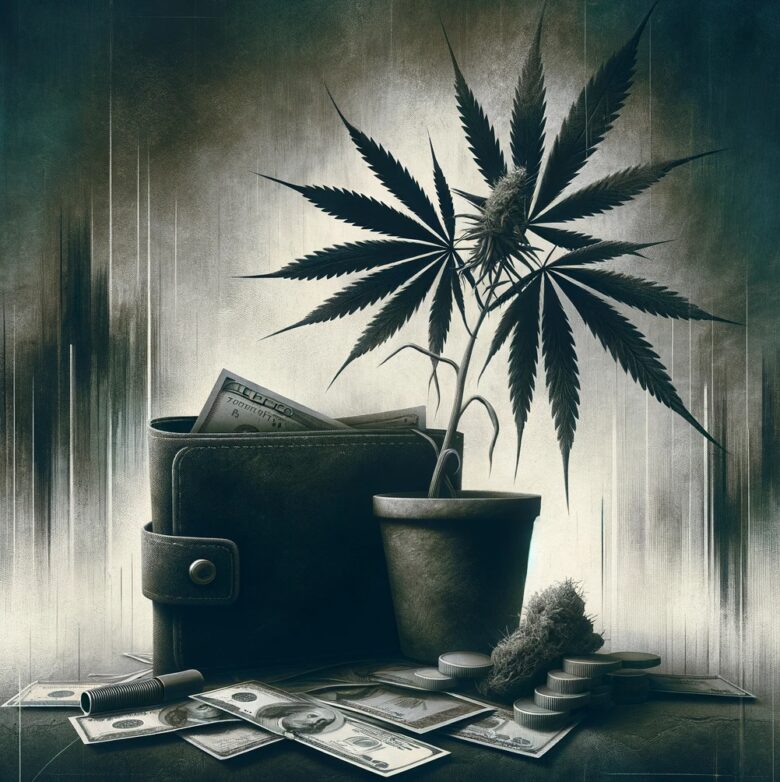Is there a link between poverty and Marijuana?
A comprehensive investigation published in the Journal of Drug Issues reveals a significant shift in marijuana consumption patterns. Authored by Steven Davenport and Jonathan Caulkins, the study delves into a decade of national drug use surveys spanning 2002 to 2013, offering a nuanced portrait of marijuana usage in the U.S. and its demographic correlates.
The study unveils that the cohort of daily marijuana users has expanded substantially, with a notable proportion being economically disadvantaged individuals without a high school education. This trend aligns more with tobacco consumption patterns than with alcohol use. In the early 1990s, merely about 11% of past-month marijuana users reported daily or near-daily usage. This figure has now escalated to an astonishing 33%, with these frequent users accounting for roughly 68% of all reported marijuana use days.
These patterns echo the consumption dynamics observed in tobacco usage. Caulkins, in his correspondence, highlighted this shift, noting that over the past two decades, marijuana usage has transitioned from an occasional activity, akin to alcohol consumption, to a more habitual one, similar to tobacco use.
The study also sheds light on the educational and economic background of marijuana users. In 2012 and 2013, adults without a high school diploma represented 19% of all marijuana usage, a figure disproportionately higher than their representation in the total adult population (13%). This demographic also constitutes a significant share of cigarette consumption but a considerably smaller fraction of alcohol use.
Alternative Could be CBD

This may or may not be a solution but in my mind it just might be, what if we were to encourage a non mid altering alternative like a high milligram CBD cream or oral tincture?
Further, households with an annual income below $20,000 accounted for a substantial 29% of all marijuana use and 27% of cigarette use, contrasting sharply with their 13% share in alcohol consumption and 19% in the total adult population. This concentration of use among lower-income groups suggests that a significant portion of their income is devoted to marijuana, with 15% of all usage attributed to those spending a quarter of their income on it.
An intriguing observation is the inverse relationship between marijuana arrests and purchases over the last decade, especially as many states have relaxed their marijuana policies. The risk of arrest for marijuana use has significantly decreased, from one arrest per 550 purchases in 2002 to one per 1,090 in 2013. However, this reduced risk disproportionately affects non-white users, who still bear a higher brunt of legal consequences.
Davenport and Caulkins emphasize that their study, conducted before the inception of recreational marijuana markets in Colorado and Washington, does not provide direct insights into the implications of legalization. They caution against interpreting their findings as either a condemnation or endorsement of legalization policies.
As more states like California and Colorado legalize marijuana, the study highlights that while most users control their consumption and are content, the lion’s share of consumption is by a smaller group of frequent users. These individuals are often less educated, less affluent, and struggle more with controlling their use. This dichotomy raises important questions about the optimal policy for both average and heavy users in the context of legalization.
The research suggests that legalization should be paired with public health measures, such as treatment programs and awareness campaigns, to mitigate the risks associated with excessive use and to support the well-being of the entire spectrum of marijuana users.
Author Profile

- Jeevar Athni, the heart and soul behind this blog, is a passionate advocate for social change. With a deep understanding of the complexities surrounding poverty and social inequality, Jeevar embarked on this journey to create a platform that not only informs but also inspires action.
Latest entries
- January 30, 2024AlternativesShift in Cannabidiol & Marijuana Consumption
- January 15, 2024DisabilityTips Social Security Disability Phone Interview Questions
- January 14, 2024DisabilityWhich is Best Long Term Disability Insurance Vs. Social Disability
- January 13, 2024ScriptureExamples of Addiction in The Bible

